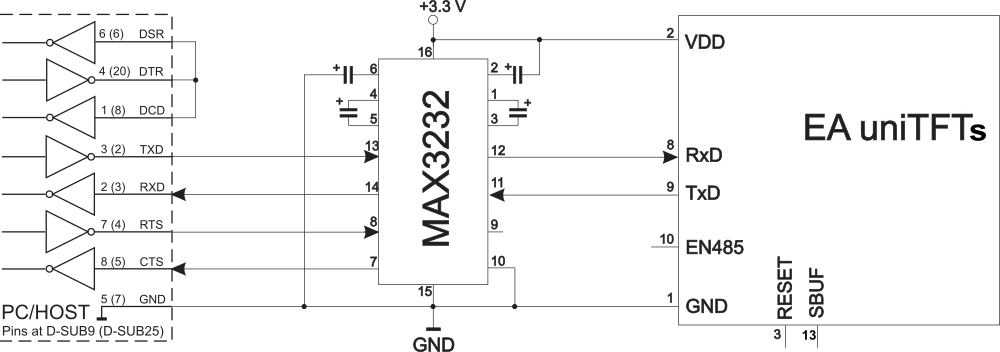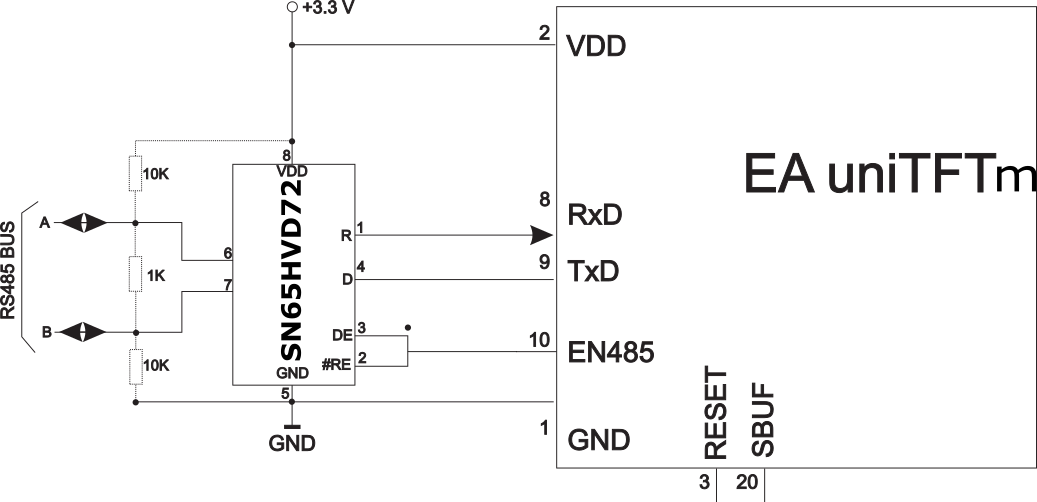RS232
RS232 is a standard for a serial interface.
The EA uniTFT provides one RS232 interface, that can be operated as slave (default) or as master: As slave interface it is used to communicate with the display. All data sent to the display are interpreted as a command (with and w./o. Small-/Short-Protocol). If you would like to send and receive any data via RS232 to other devices then you have to use it as master. Those are handled via #H commands.
The transmission is serially asynchronous. Thus the data is converted into a bit stream and transmitted. There is no clock signal, so transmitter and receiver need to work with the same data rate (so-called baud rate). RS232 is a voltage interface, such that data is transmitted using changing voltage levels. In the PC world and industrial controls, levels of + 12V and - 12V are defined as standard. With boards or micro-controllers levels of 0V and VDD (in the case of EA uniTFTm-Series 3.3 V) are common. To adjust the signal levels, there are some possibilities in the form of level shifters (e.g., ICL232, MAX202). RS232 consists of "listening" and "talking" lines that are crossed between the two parties.
In the EA uniTFTm-Series, the data format is fixed to 8-N-1. Baud rate is pre set to 115200 baud:

The EA uniTFTm-Series works with the following baud rates:
Baud |
Error |
Baud |
Error |
9600 |
+0.04 |
115200 |
+0.64 |
19200 |
-0.08 |
230400 |
-0-80 |
38400 |
+0.16 |
460800 |
+2.08 |
57600 |
-0.08 |
921600 |
-3.68 |
The parameters (baud rate) are set using command #XCR (higher-level control unit), and the master interface is set with the command #HRP. Those definition can be done in start.emc e.g.
You may check the current settings in Boot menu.
Application notes

RS232 V24 - Interface to a PC (EA uniTFTm)
RS485 / RS422 interface
With this simple external IC a communication to any RS-485 and RS-422 can be done.

RS485 - Interface to a PLC (EA uniTFT )
